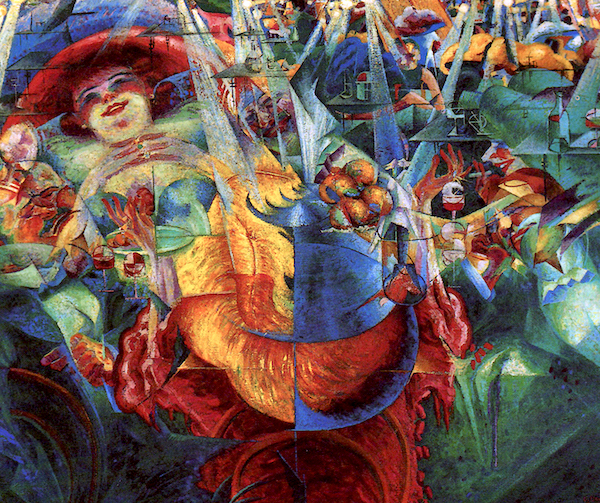His Wikipedia entry is of sufficient length to provide a reasonable sense of his life and career. Some of the paintings shown below are discussed, along with two of his early, largely representational paintings.
Boccioni was serving in the Italian army when he died as the result of an accident. As the Wikipedia entry notes, this was when he seemed to be drifting away from Futurism. From the images shown there, it seems he was beginning to experiment with styles being used in Paris. How he might have developed had he survived the Great War is unknowable, of course.
A 1912 photograph of Boccioni (at left) and Marinetti: two well-dressed aesthetic revolutionaries.
La risata (The Laugh) - 1911
This painting is partly shown at the left of the photo above.
The City Rises - 1910
An early Futurist painting by Boccioni.
Visioni simultanee - 1912
Horizontal Volumes - 1912
The Wikipedia entry has this dated 1915 and cited as a sign that Boccioni was drifting from Futurism. However, most items relating to this work found via Google have its date as 1912. This seems to make sense because this is clearly a Cubist-style portrait similar to what Picasso and some others were painting around that time. Boccioni must have been experimenting here.
Elasticità (Elasticity) - 1912
An important element of Futurist painting was attempting to depict motion.
Testa + luce + ambiente - 1912
Dinamismo di un giocatore di calcio (Dynamism of a football kicker) - 1913
More motion.
Dinamismo di un ciclista (Dynamism of a Cyclist) - 1913
Again, motion.
Carica di lanceri (Charge of the Lancers) - collage - 1915
Futurism was in favor of warfare.










No comments:
Post a Comment